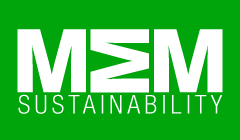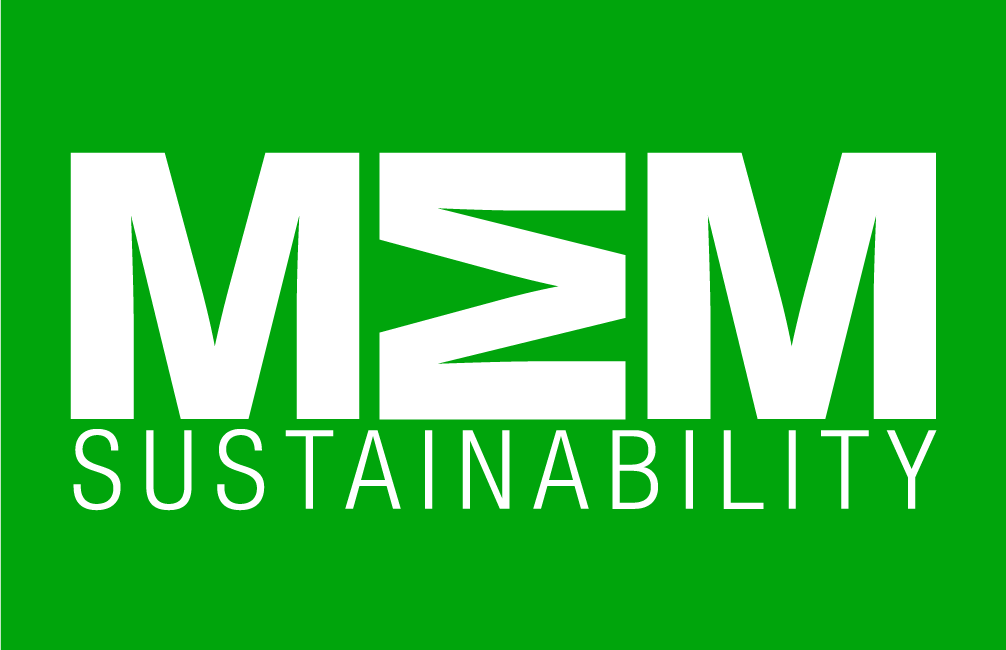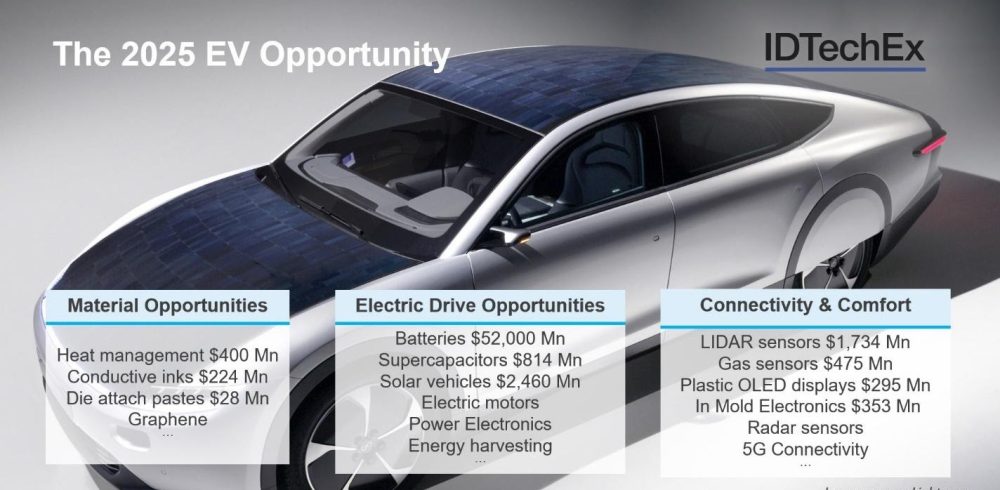Printed Electronics: The Opportunities Are Coming Thick and Fast : There is dramatic change in some industries, with leading printed electronics vendors moving quickly to capitalize on the new sought after capabilities. These opportunities will be addressed at the Printed Electronics Europe exhibition and conference in Berlin on 13 – 14 May (register by 23 January to save 40%).
Flexible and Printed Electronic in Mobility
Take for example vehicles, which are moving increasingly away from using internal combustion engines (ICE) to electric drive systems, the shift occurring at faster rates than many had expected. Tesla is one of the few companies rapidly growing their European headcount – others are in reverse while they frantically change. The move to electric drive systems offers many opportunities for those in printed electronics. For example, power semiconductors will be used over conventional silicon integrated circuits to handle the higher power transfer, resulting in a need for more appropriate semiconductor packaging materials to dissipate the heat. Silver nanoparticle materials and graphene are already in use by Tesla and Ford respectively today.
Car dashboards are becoming increasingly integrated, with automotive giants investing heavily in In-Mold Electronics (IME), a printed electronics sector growing from virtually nothing to a billion dollar segment in a few years. The €17Bn automotive parts supplier Faurecia forecast a €2.9 billion market for printed electronics in vehicles by 2025, announced at an IDTechEx Printed Electronics event in 2019. The functional ink and material providers have rallied behind the opportunity.
Flexible and Printed Electronics in Healthcare
Another changing sector is healthcare, with disease prevention a key focus of the global burgeoning healthcare system. In decline is the market (at least by value) for glucose test strips, in part because of the cumbersome process and pain involved in regularly drawing a blood sample. Rising instead is the use of electronic skin patches to monitor the human condition continuously. In other sectors heart rate monitors are also seeing a shift from the uncomfortable and bulky wired systems to systems that are skin-like.
From large area skin electrodes to making thinner, more comfortable sensing patches, vendors in materials and systems within the printed electronics industry are deep into product development while others have already enabled a range of commercial electronic skin patch products, a market which will grow to $20 billion in 2029.
Flexible and Printed Electronics in Consumer Electronics
Then there is consumer electronics. 5G will result in less reliance on problematic wired broadband and it will enable new services and applications thanks to the faster data transfer capability. However, the higher frequencies that are increasingly employed to achieve this mean that more shielding is required at an IC package level, with spray-on or print-on electromagnetic interference (EMI) solutions in trials now, thanks to printed electronics.
Or how about the need to differentiate the tired old phone and tablet format. Foldable displays anyone? For sure it’s not easy but then those who crack the hardest challenges may be set to win big. IDTechEx sees the flexible/foldable display marketing growing substantially, in parallel to display technologies beyond OLED making an impact – such as quantum dots and microLED displays, in parallel again to the printed display scene which has quietly seen drastic material and process improvements and is now going for prime time with products on the market.
From material opportunities in electric vehicles to electronics skin patches in healthcare to new form factors of electronics in consumer devices; these are among the topics covered at Printed Electronics Europe; the conference, showcase and exhibition of the printed and flexible electronics industry, to be held on 13-14 May in Berlin, Germany.
2,500 attendees, over 250 speakers and over 200 exhibitors will converge at the event, which focuses on the business of printed electronics – with key OEMs and value chain participants moving the industry forward.
Register by 23 January 2020 to receive the 40% attendee discount. Meet the industry and progress your growth opportunities in the sector. Learn more at www.PrintedElectronicsEurope.com.
Manufacturing & Engineering Magazine | The Home of Manufacturing Industry News















